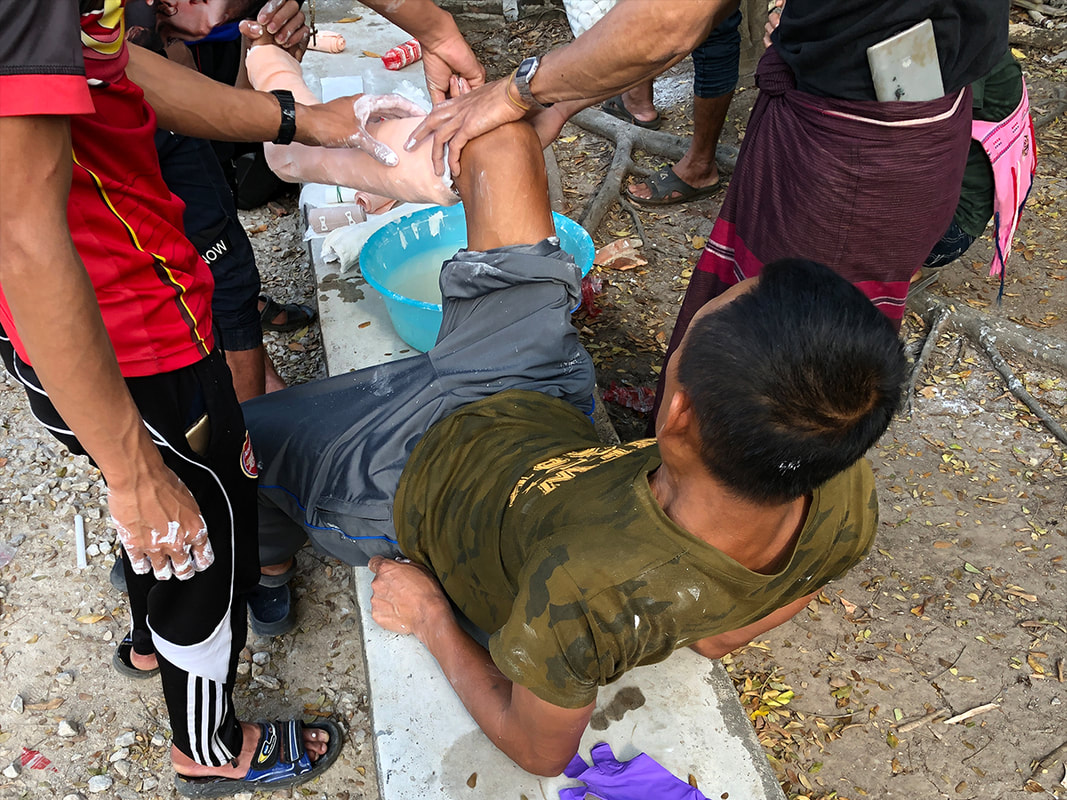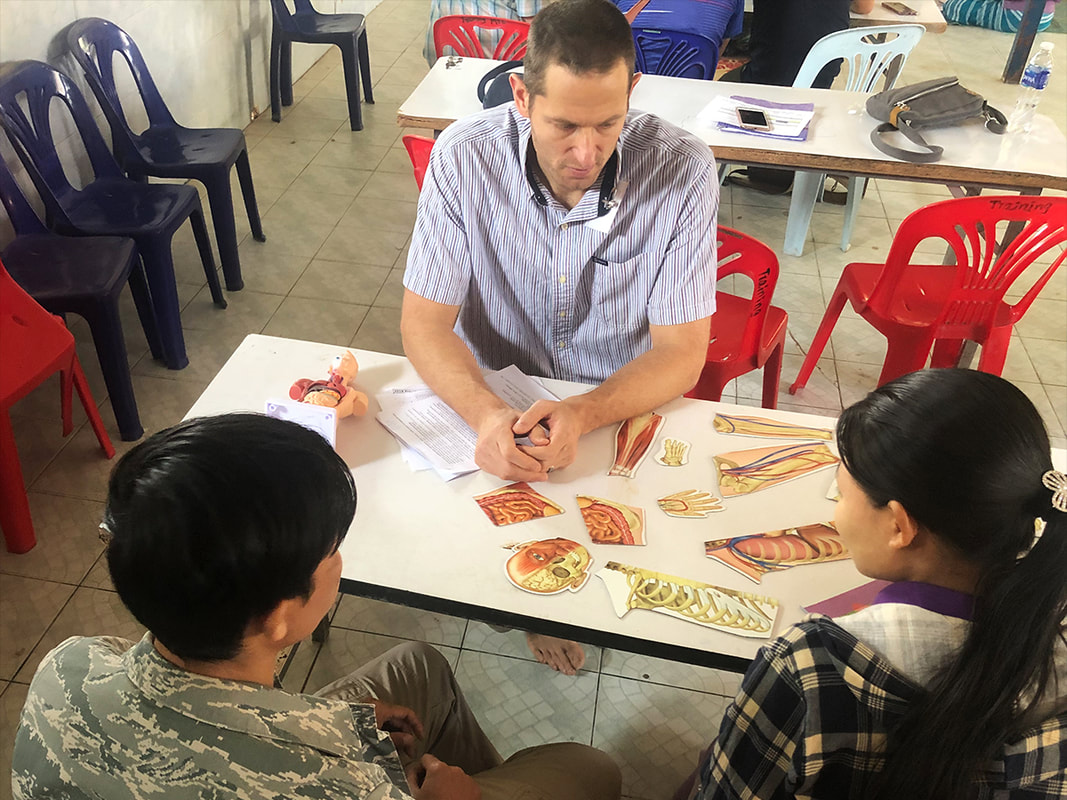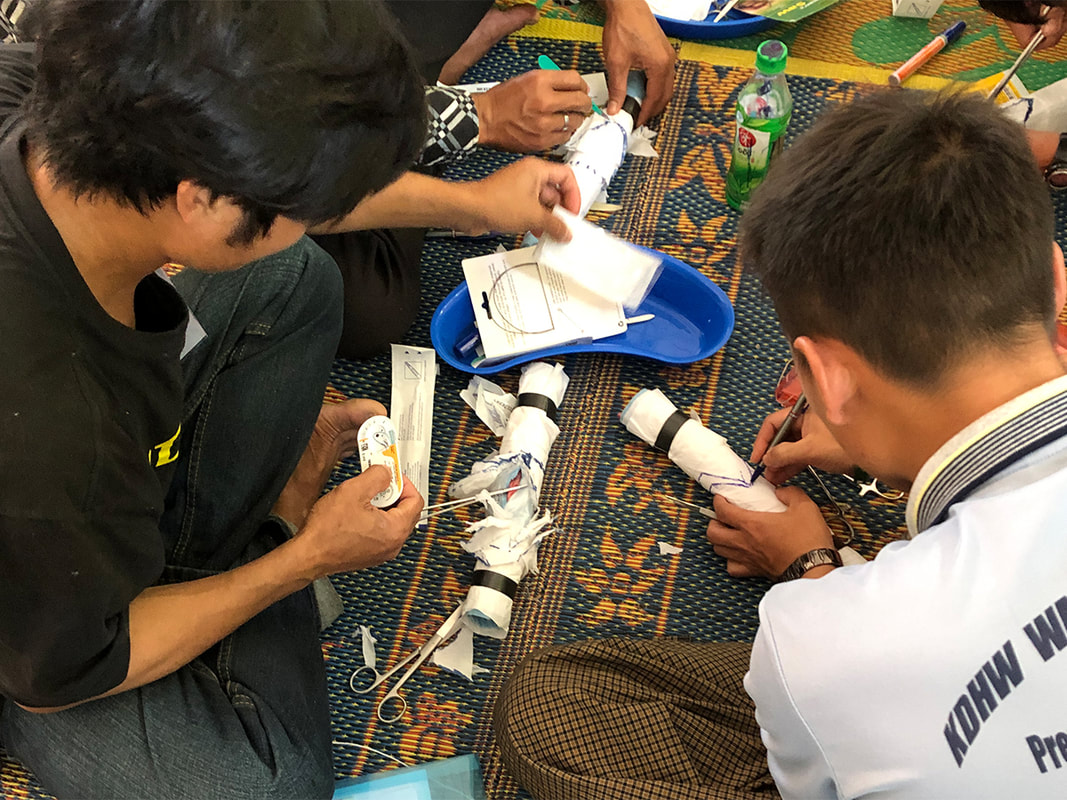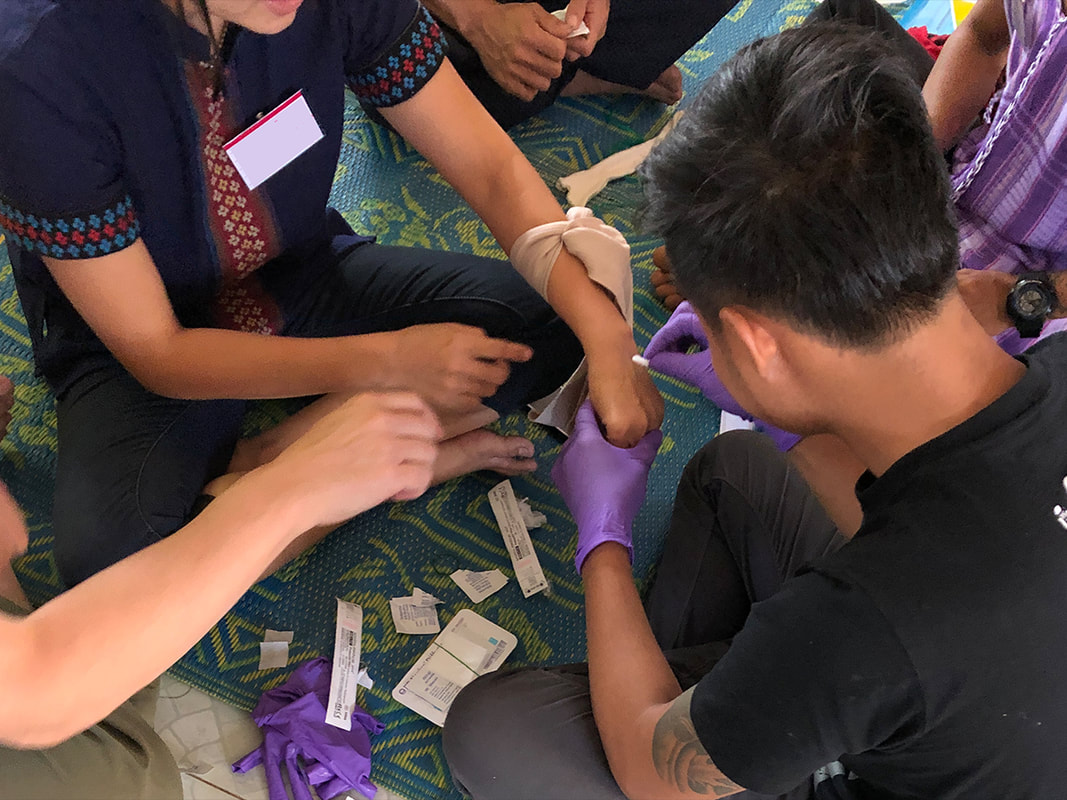|
In late January, for the 20th successive year, a group of emergency medics from Kayin State, Myanmar, gathered on the Thailand-Myanmar border to learn how to manage patients with major and minor traumatic injury and emergency medical illnesses. The six-day workshop was organized by the Karen Department of Health and Welfare (KDHW) with support from Community Partners International (CPI). The 25 medics who attended the 2019 workshop operate from 14 clinics in remote and conflict-affected areas of Kayin State, and provide the first line of emergency medical care to their surrounding communities. Twenty years ago, when these workshops began, eastern Myanmar was in the grip of a decades-long civil war. KDHW’s emergency medic teams were a lifeline for communities caught in conflict and they dealt regularly with gunshot wounds and landmine injuries. The communities these medics serve are dispersed widely across rugged terrain and are frequently hard-to-reach. Medics often need to travel long distances by foot on jungle pathways and by boat to provide care. In recent years, with a ceasefire in place and peace negotiations ongoing, the profile of emergency needs in these communities is changing. Gunshot and landmine injuries continue to occur but less frequently, and development has brought other risks. Field medics are seeing an increased number of patients injured in road accidents, as well as burns, animal attacks, lacerations and broken bones. As in previous years, the 2019 workshop focused on core emergency medicine topics including emergency case assessment, mass casualty management, shock, bleeding and wound management, pain relief, fractures and dislocations, splinting, amputation, and rehabilitation. Medics also had an opportunity to practice surgical techniques to be used in a ‘jungle operating theater’ context. The attending medics reported that they attended to at least 154 patients between January and June 2018. They treated diverse range of injuries including the following cases:
More recently, the focus of the workshops has expanded to encompass wider community needs encountered by emergency medics. This year’s workshop addressed additional topics including pregnancy and basic emergency obstetric care, pediatrics, regional anesthesia, skin infections, chest and abdominal pain, diarrhea, shortness of breath, drug and alcohol addiction, and altered mental states.
The workshop was led by Dr. Charles Washington, an Emergency Medicine physician based in Boise, Idaho, and Dr. Cameron Crandall, Professor of Emergency Medicine at the University of New Mexico, supported by a team of volunteers from the US working in emergency medicine. Training sessions were co-taught with senior medics from the Karen Department of Health and Welfare, reflecting the success of the ‘Training of Trainers’ model that has been incorporated in these workshops for the past seven years. To support the work of the trauma medics you can make a secure donation in seconds here. For more information, please contact us. Comments are closed.
|
AuthorCPI Admin Archives
July 2024
Categories
All
|
|
|
COMMUNITY PARTNERS INTERNATIONAL
580 California St Fl 16, Ste 1658, San Francisco, CA 94104-1068, USA [email protected] +1 510 225 9676 We are a registered nonprofit 501(c)(3) Public Charity. TAX ID 94-3375666 |
©
Community Partners International





 RSS Feed
RSS Feed
